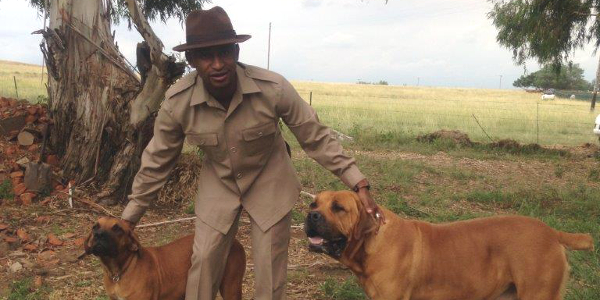
When South African chartered accountant, Mochele Noge, decided to purchase a 200-hectare farm in 2013 with a business partner, he originally saw it more as an investment in property rather than in farming. The land, close to Frankfort in the Free State province, had been previously used as a sheep feedlot and Noge admits he knew little about farming when he first acquired it.
But today it has grown into a profitable operation that has attracted private equity investment from the South African-based IDF Capital. Noge has since bought out his partner and acquired an abattoir to increase his business’s stake in the supply chain.
“It has certainly grown into something I hadn’t envisioned in the beginning,” he admits.
However, Noge has always had an interest in property and believes it is one of the best ways to grow one’s wealth. He made his first investment in a residential property in 1996 when he was 22 years old with the help of a stokvel, a type of savings cooperation in South Africa where members contribute a small set amount regularly and each get a turn to receive a lump sum payment.
“It is kind of like an interest-free loan and all you do is rotate money instead of keeping it in the bank,” he explains.
“This allowed me to pay the transfer fees and the bond costs… given that I didn’t earn a lot at the time.”
Noge rented out the property while he continued to live with his parents in order to supplement as much of the bond costs as possible. In the beginning it wasn’t easy, but as the rental levels went up each year, and he started to earn more, his bond payments began to become less of a burden. Within four years, he managed to buy his second residential property in a new development that did not come with any transfer duty fees. He then moved into his first house, and rented out his second.
To maximise his income, Noge opted to manage the rentals of his properties himself rather than pay an agency to do it.
“So I would collect the rent, drop off the lease agreements and, if rent wasn’t paid, I’d collect it personally. But then again I have the personality to do that. I don’t see why I must pay someone 10% to put in the advert to get a tenant for me.”
He bought his third property before the age of 30 when he married his wife, and spent the next few years focusing on raising a family, as well as various other business investments and ventures – after leaving formal employment.
His next property investment was the sheep feedlot business which he and a business partner acquired at an auction. While he has a farm manager who stays on site, Noge makes weekly trips to the farm from Johannesburg to oversee operations as much as possible.
“Of all the businesses that I have been involved in, this is the most fulfilling… in a very romanticised way.”
Know your area
“What makes these property investments so attractive is that it is all something that you can do in your spare time – even if you are full-time employed,” says Noge.
His advice to others looking to venture into property is to start as soon as possible, and be prepared to make sacrifices. For example, in order to afford his first property, Noge chose to live with his parents rather than in his own place as so many young people wish to do.
“And let’s say you are able to come up with a 100% bond as a first-time buyer, you are going to have to probably supplement that bond with a few grand [once rented out] – which means you probably aren’t going to drive as flashy a car as you may have wanted. With limited financial resources, you can only do so much.”
However, he notes that once that first investment is made, it becomes easier to do the next one.
Noge also advises first-time property investors to buy in areas they know – even if that means lower potential returns.
“I’ve generally bought property in areas where I have lived… You might not make the crazy returns of others who had the wisdom to buy in an area which then went through a crazy boom, but the safer the bet, the safer the return.”
Comments
Post a Comment